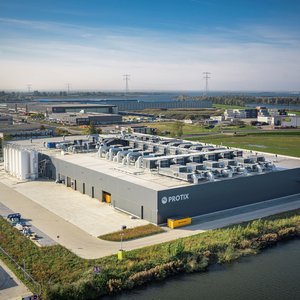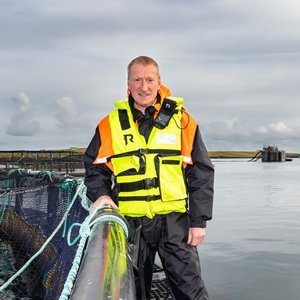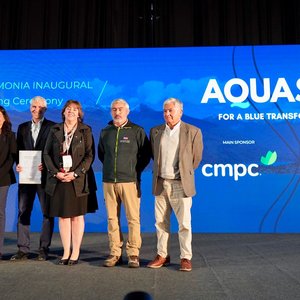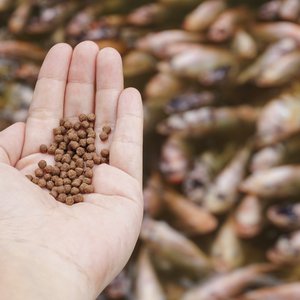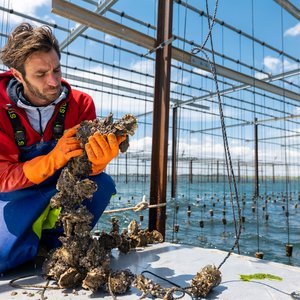A fire leveled the Purdue University aquaculture research and teaching facility near Montmorenci, Ind., early Sunday morning (Nov. 14). No one was injured, but several species of fish under study for food production and fisheries research were lost.
The Tippecanoe County Sheriff's Department received a fire alarm at 2:53 a.m. Otterbein, Ind., volunteer firefighters were first on the scene by 3:13 a.m. and were joined by firefighters from Wabash Township and Purdue. The ceiling of the building was completely engulfed in flames visible from the ventilation vents. It took firefighters several hours to control the fire, which was cleared at 10:39 a.m. The cause is under investigation.
The aquaculture center provided space for water tanks and raceways that allowed scientists and graduate students to study growth rates, soybean-based diets and advanced production systems for fish farming, as well as investigate wild stocks for hardiness and fisheries management strategies.
"We certainly regret the loss of the animals, which were important for many reasons, including the insights they provided for helping keep wild fish populations healthy and helping us grow the Indiana aquaculture industry," said Joseph L. Bennett, vice president for university relations. "Our first priority will be to help the graduate students and researchers get that work back on track."
One significant setback was the loss of several lake sturgeon raised specifically for research that Purdue fisheries biologist Trent Sutton hopes will help fisheries managers find ways to save the endangered sturgeon from the sea lamprey, an invasive parasite that preys on several important fish species in the Great Lakes.
The aquaculture facility was opened in 1992 at a cost of nearly $1 million. In addition to the building, the fire also destroyed tanks and analytical equipment in laboratories and offices. It would be difficult to assign a dollar cost to the lost fish and the research, Bennett said.
Purdue School of Agriculture administrators have begun work on an intermediate plan for helping the graduate students recover or continue their studies as well as a preliminary reconstruction plan for a new aquaculture facility. [Source Purdue University]




